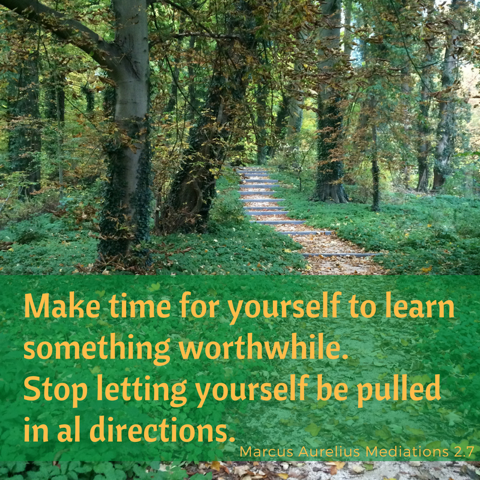How to start working softly in science in 4 steps
With a harassed look Mireille stows some papers in her bag that she is going to grade tonight. A smile fleets across her face: “Did I tell you I am pregnant?” She has just started a temporary teaching position, where she is to do a big introductory course and a somewhat smaller advanced bachelor intensive. She is also planning to write her NWO VENI grant application in the same period, hoping she can create a job following her maternity leave. How can she keep calm and preserve the mental space she needs for developing her new proposal?
Working hard is the norm in academia
Especially temporarily employed academics are always busy meeting deadlines, grading papers, writing as many articles and grant proposals as they can. They are constantly pushing on and it is never enough, because… competition and performance pressure for that elusive holy grail of academic success. Most recent PhD’s and postdocs are in their thirties, making some crucial, life shaping decisions. Relationship, or not? Children, or not? Move abroad, or not? You cannot put your life on hold, so you try to juggle all of it.
A recent book about Good Work for Academics by Van den Brink, Scholten and Jansen emphasizes the negative consequences of the academic ratrace. They highlight the costs not just for the individual researchers involved, but also for the quality of research, for the academic community, and for society at large.
The price Mireille is about to pay is twofold, and does not only impact her individually but has much wider ramifications.
- Lack of basic self-care. She considers taking breaks a luxury, has no time to sport at all despite her desire to, and barely sleeps enough. A standard recipe for a burnout.
- Inability to develop her research vision. She does not have time and mental space to develop a long term research plan that she needs to underpin any major grant application. A foolproof way to put a stop to your ambitions to become a full professor. Too bad that another potential female professor drops from the pipeline.
Academic ideals require working softly
Mireille dreams of doing things that interest her in her own way. Ideally, she has plenty of energy and time for research work that makes her profoundly happy. She can take time off without feeling guilty and come back to work refreshed and relaxed. She has endless creative ideas and easily delivers outstanding results, while enjoying motherhood.
If you are like Mireille, the academic culture of working hard is not helping you to be successful. You need to dissent from the hard working norms in academia and start working softly. You do not believe this is feasible for stressed-out, non-tenured early career researchers like you? I challenge you to follow the steps Mireille took to achieve more while working more softly.
4 steps to start working softly in science
These easy steps helped Mireille to break her hard working habits. You can use them too and start working softly. This is how you start creating time, energy and space to deliver creative, innovative top results in a relaxed, sustainable way, without becoming drained and burned out in the process.
- Despite your busy schedule, plan your ideal week. Create 3-4 hour blocks of time dedicated to specific tasks. Do not try to cram working on your grant proposal in a time-block that already contains a lecture or a meeting. Allow for empty time, breathing space, and unforeseen hurdles. Book at least one block a week dedicated exclusively to creative thinking or writing.
- Turn off email notifications on your computer and decide on a specific moment or two per day to handle your email. Preferably after lunch, so you keep your morning block free of apparently urgent requests that distract you from focussing on what is really important, e.g. prepping your lectures or thinking about your research vision and proposal. The same goes for social media: be aware of when and how you engage with them.
- Monitor your energy and concentration levels throughout the day and week. You may notice that you feel like you need a full day with an empty agenda for deeper research work, whereas in practice your concentration on such a day is actually finished by lunchtime. You can then use your afternoon for lighter tasks like email. If you prefer to work late at night, take an honest look at the quality of the work you do at that time, and at your energy and concentration the next morning. What does your energy balance tell you about your ideal workweek schedule (step 1)?
- Once you have an overview of your ideal workweek schedule and are aware of your energy and concentration balance on a given day, you are capable of making conscious choices about what to do and when, and what not to do. You will notice that this brings about the peace of mind that you need to be able to think properly.

Amazing results
This practical strategy of scheduling time, energy and tasks had big impact on Mireilles work, her personal wellbeing, and her family. She no longer continually checks her email and social media, but focusses on one task at a time. This makes her much more attentive at work and more relaxed at home. It feeds into a positive cycle: she arrives well rested at work in the morning, feeling free despite her full schedule. She now perceives how the freedom to do things that interest her does not need to interfere at all with routine tasks that she is also responsible for. Within a year from this change she not only received her VENI grant, but also gained a tenure-track position, and gave birth to a healthy, beautiful daughter. Congratulations, Mireille!
Challenge to act and work softly
Do you feel overwhelmed, making little progress in your research while chaos and chance rule? I challenge you to take the 4 steps above and apply them for 30 days consistently. In the first week you still have to switch gears. In the second week you become somewhat familiar with this new way of working. In the third and fourth week you really notice the impact of working softly on your work and life. After this month you can switch back if you want, but I bet you won’t!

New post (How to start working softly in science in 4 steps) has been published on Van Sijl Counseling & Training https://t.co/OO9T5yem8w
This, precisely. http://www.academiaobscura.com/the-workaholic-and-academia/